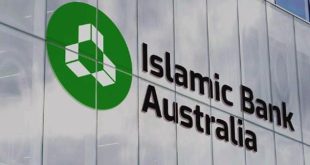Beata Paxford is a lawyer and Ph.d. candidate in Banking Law. Beata is currently writing her dissertation on Islamic Banking at Warsaw University in Poland. She is an Islamic Banking advocate in Poland and hopes to popularise Islamic banking in the CEE countries.
© Islamic Finance Today
Recent developments
In the light of the recent bankruptcies of some leading banks, a question arises as to the future of conventional banking. The financial crisis and shady dealings with derivatives has led to the virtual collapse of the global economy and heavily influenced the banking industry. Hence, bankers have started looking around to find solutions not only to help the existing banks but also to rebuild the credibility of the banking industry.
That is when Islamic banking came into focus. With its universal ethical code and profit and loss sharing rules, it fills a market need for the rebirth of the banking sector. At present, we could see an increased interest in Islamic banking and Islamic investments. The UK has undertaken legal amendments in order to introduce Islamic banking products. France has recently appointed the ACERFI board of scholars in order to implement Shari’ah-based regulations under French law. The German state of Saxony –Anhalt has benefited from sukuks created for the purpose of economic development of the land. Even the CEE countries are becoming more interested in Islamic banking products and transactions.
Similarly conventional banks including some of the most renowned global names have decided to offer Islamic banking products for their clients within the so-called Islamic Windows concept. Islamic banking products are of a universal nature. They can serve for the purpose of both micro and macro financing. For an individual client, including poverty stricken populations in rural areas, there are special Islamic micro-credit schemes. These function successfully in Bangladesh and India, where groups of poor villagers have benefited from Shari’ah- compliant micro loans designed to help those in need develop financially.
The idea of microcredit is to serve the collective good. By granting such loans, poor people are able to become financially independent which will result in the greater good and socioeconomic progress of society. Furthermore, all clients of the Islamic bank have the option of granting part of their capital for charitable purposes. Even those in default, instead of paying the penalty interest as is the rule in conventional banks, are asked to make a payment to a charity fund instead. Islamic banks also offer the possibility of devoting some of the clients’ income from transactions or from using a bank card as a donation for those in need.
Ethical banking
Islamic banking is in fact ethical banking. It has a set of moral rules and guidelines which have not changed over the centuries. Its permanent character makes it more appealing to the banking public. Furthermore, the principles of Islamic banking make this type of banking more credible and trustworthy than a conventional one. For instance, the transactions on derivatives are forbidden as one cannot trade something that does not exist at the time of a transaction. The same goes for short selling, which is regarded as one of the most risky and controversial transactions. The only exception is made for a forward contract treated as a kind of Salam, where deferred payment is permissible.
The rules also apply to investments. Investment and trading in pornography, weapons and pork is considered haram or forbidden. The other interesting rule concerns the contractual relationship between a bank and a client. The contract cannot contain any element of Gharar which is defined as uncertainty/ambiguity; otherwise the transaction is deemed null and void. Gharar refers to such provisions in a contract, the meaning of which is unclear and leaves any of the parties in doubts about its purpose or intention. However, the most famous rule in Islamic banking is the prohibition of riba. The term riba applies foremostly to undue payment, but it is used most commonly to describe interest charged by the banks. The prohibition of riba refers also to compound interest which is considered haram and unjust. Riba is connected with increase of the value based on flux of time. Time belongs only to God and man cannot benefit from time.
Islamic modes of financing
Furthermore, if you look at Islamic banking products, one can see that they offer very beneficial ways of financing. With Mudarabah financing, for example, we have a rabbul mal (a financier) who provides the capital and mudarib (the manager) who brings the idea and the know-how. The only partner responsible for representing and managing the undertaking is the mudarib. The rabbul mal is only the capital provider and does not interfere with the management. Mudarabah is based on a profit and loss sharing mechanism. However, it will be the rabbul mal who will bear the loss, not the mudarib. The reason for this is that the mudarib can be deemed liable for loss only due to his negligence in management if the negligence resulted in the loss. The profits are divided between the mudarib and rabbul mal on a pre-agreed ratio.
Another commonly used product is Musharakah. If one compares musharakah to standard financing, one would find it is a joint-venture contract, where the common objective for the partners is its purpose. Musharakah acts on the basis of shirka (partnership), where the partners decide to enter into a common project. One of the partners plays the role of financier of the undertaking – this is usually a bank.
The bank can act as an active partner, but can also formulate different ways of financing its partner’s project. For instance, a bank can offer a running Musharakah account, where the client can draw the money depending on his needs. Musharakah can be based on joint ownership or on a mutual agreement entered into for the purpose of conducting a business. While the aforementioned modes of financing serve mainly big transactions, often on international levels, Murabahah serves the general public of customers. Murabahah is used mainly in facility and real estate purchase. The clients, who wish to buy real estate for housing purposes, can choose from a wide range of banking products. They cannot use the mortgage loans offered by conventional banks, but can use a Murabahah agreement. The main difference between a conventional mortgage loan and a Murabahah contract is that the first one is based on interest which is forbidden by Shar’iah.
In a Murabahah transaction, a client may approach a bank to buy a house. He chooses a house and asks a bank to purchase it for him. The bank may purchase the property or it can appoint the client to act as the bank’s agent and to buy the property in his own name but for the bank’s account. The bank purchases the property and then re-sells it to the client for its actual price plus the bank’s fee. In this transaction the client knows the exact price of the property and the bank’s fee. The client then purchases the property from the bank and then pays the price plus the bank’s fee in instalments included in the rent. Hence, the client paying the rent pays back the bank for the property. The client becomes the owner of the property upon paying the final instalment.
The principles and products of Islamic banking are very beneficial to the modern banking industry. After the collapse of international banks, it is high time to rebuild the public trust in banking services. Moreover, it constitutes a great opportunity for Islamic banks all over the world to open up their branches in new territories to promote the idea of ethical Islamic banking but also to attract those disillusioned with conventional interest-based banking. The increasing interest in this new banking trend can help restore the faith in banking and can change its image from a money-concerned body to an institution that works for the common good.
Post Disclaimer | Support Us
Support Us
The sailanmuslim.com web site entirely supported by individual donors and well wishers. If you regularly visit this site and wish to show your appreciation, or if you wish to see further development of sailanmuslim.com, please donate us
IMPORTANT : All content hosted on sailanmuslim.com is solely for non-commercial purposes and with the permission of original copyright holders. Any other use of the hosted content, such as for financial gain, requires express approval from the copyright owners.
 Sri lanka Muslims Web Portal Sri Lanka Muslims News Center
Sri lanka Muslims Web Portal Sri Lanka Muslims News Center
 Donate
Donate


